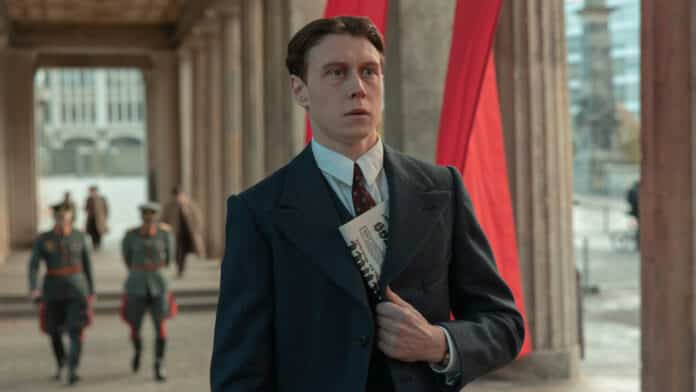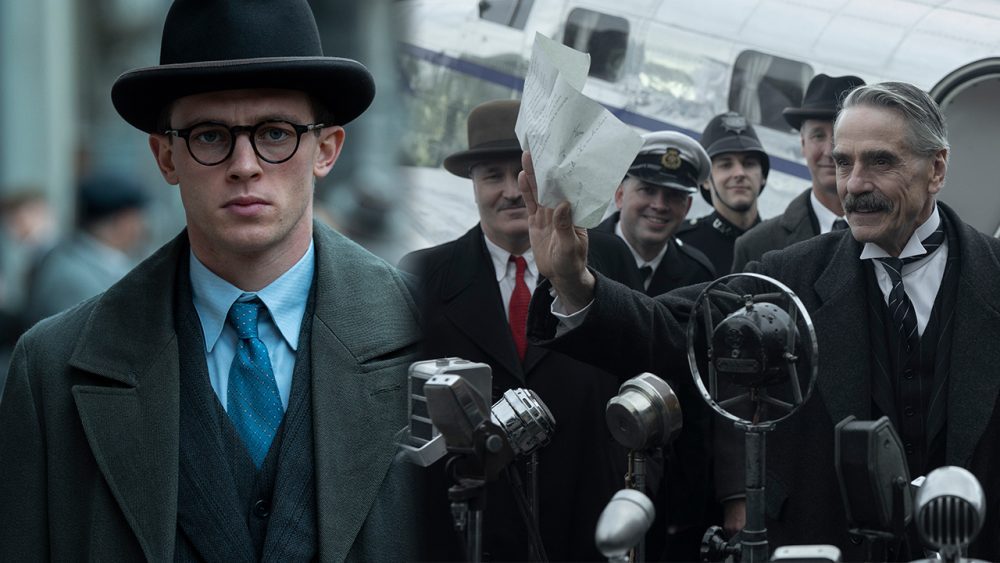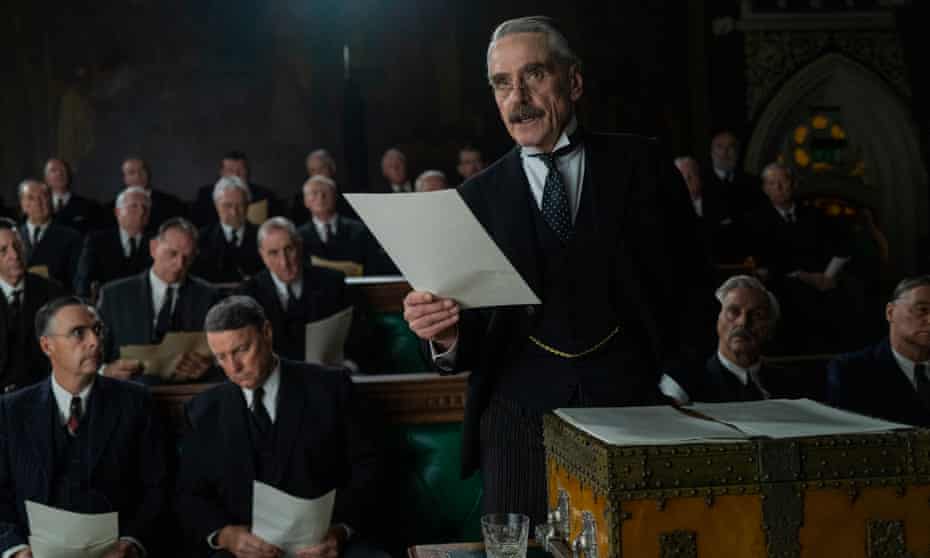
‘Munich: The Edge of War‘ is a political drama set in 1938 Europe in the days leading up to World War II.
It follows two college pals who serve as diplomats and maybe Britain’s best hope for averting a catastrophic war.
Christian Schwochow (‘Je Suis Karl‘) directed the film, which portrays an exciting plot with thriller and espionage aspects.
Because the events of the film take place in the run-up to World War II and include references to numerous real-life political personalities, audiences will be keen to learn whether it is based on any factual events or incidents.
We were likewise intrigued by the situation and wanted to investigate further. Here’s what we knew about ‘Munich: The Edge of War’s’ inspiration.
See Also: Historical Drama Movie ‘Phantom Thread’ (2017) Ending Explained

Is ‘Munich: The Edge of War’ Based On A True Story?
Some parts of ‘Munich: The Edge of War’ are based on true events. The film is based on the best-selling novel ‘Munich,’ by author Robert Harris, which was initially released in 2017.
The plot of the book centres around the events leading up to Adolf Hitler‘s 1938 Munich Agreement with British Prime Minister Neville Chamberlain.
The storey is portrayed through the eyes of Civil Servants Hugh Legat and Paul von Hartmann, who are former classmates.
The film is a faithful reproduction of the source material, with only a few storyline deviations.
However, in order to develop its narrative, the book relies on fictionalising some real-life events and creating its own interpretation of history.
Harris discussed the book’s creation in an interview. For nearly thirty years, Harris has been interested by the tale and history surrounding the Munich Agreement, according to Harris.
Based on @Robert___Harris’ international bestseller, #MunichTheEdgeOfWar is centred around two former classmates who find themselves entangled in a political subterfuge plot as Adolf Hitler prepares to invade Czechoslovakia. pic.twitter.com/SH2JqqbHcT
— Netflix ANZ (@NetflixANZ) January 19, 2022
He was interested in learning more about the significance of the agreement as well as the roles of the political leaders involved.
Harris contemplated using a “what if?” scenario to investigate the Munich Agreement but ultimately decided to look into the facts.
He stated that the goal of the novel’s plot was to provide readers with an alternative perspective on the significance of the Munich Agreement in history.
After a summit between Hitler, Chamberlain, Benito Mussolini, and Édouard Daladier in 1938, the Munich Agreement was signed.
Hitler’s desire to attack Czechoslovakia is the catalyst for the four political leaders to meet for peace negotiations in both the novel and the film.
While this is historically correct, the film ignores a number of other events, as well as the roles of the Sudeten army and the Poles, among other things.
While real-life political leaders like as Hitler, Chamberlain, and Sir Osmund Cleverly are prominently featured throughout the film, the main protagonists Legat and Hartmann are fictional.
Must Read: Ending Explanation & Review of The “Munich: The Edge of War” (2021) Movie

However, Adam von Trott zu Solz and AL Rowse are said to have influenced the characters.
Trott was a German diplomat who attended Oxford University. He later worked for the German Foreign Office and was a vocal opponent of the Nazi dictatorship. Hartmann reflects all of these facets of Trott’s life.
Alfred Leslie Rowse, on the other hand, was a British author and historian who received a scholarship to Oxford and had a brief political career.
During their time at Oxford, Rowse and Trott, like Hartmann and Legat, were close friends. Rowse, unlike Legat, never worked as a Prime Minister’s secretary or in a similar position.
Apart from the two fictional characters, the film depicts Hitler’s and Chamberlain’s encounters. The majority of their interactions are historically based, demonstrating the writers’ meticulous attention to detail and thorough study.
‘Munich: The Edge of War‘ is a strong blend of history and fiction, all things considered. Its success comes in its ability to use facts to create a tense and captivating environment with a sense of urgency that reflects the political unrest of the time period it depicts.
The storey, on the other hand, relies on fictional characters to manage the tangle of difficulties caused by divergent political viewpoints and desires.
As a result, it’s better to think of the film as historical revisionism.













